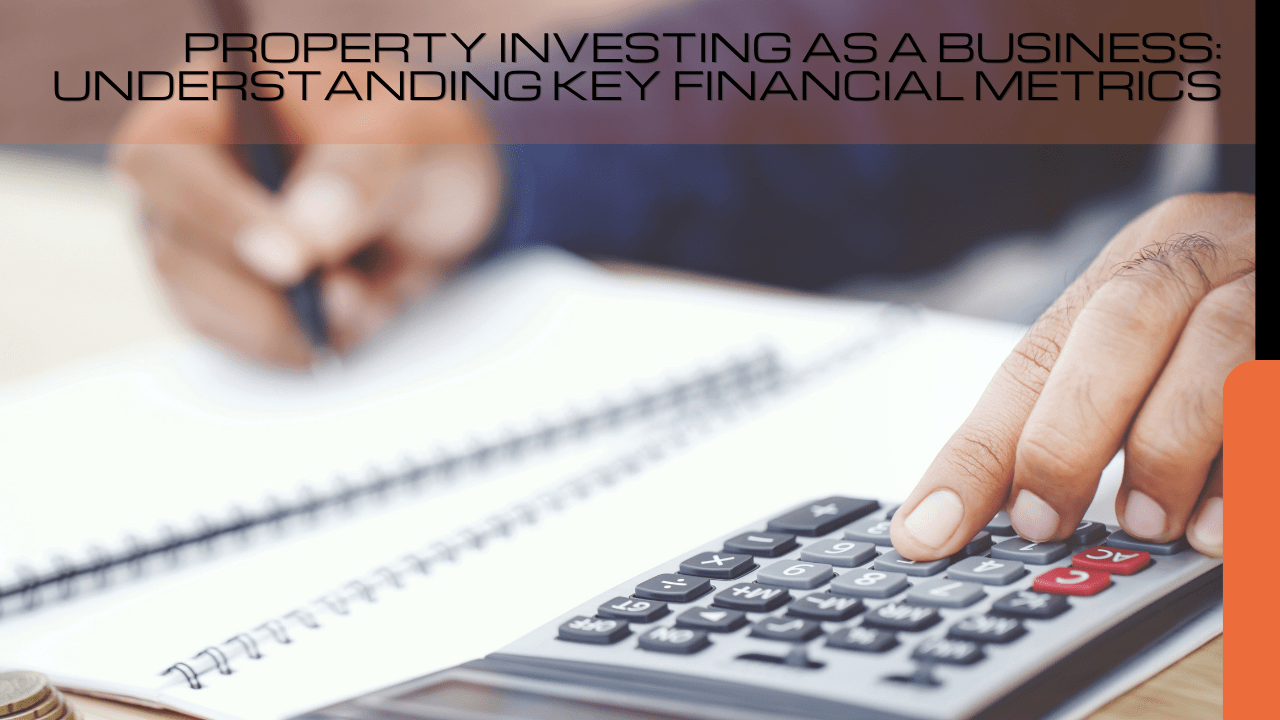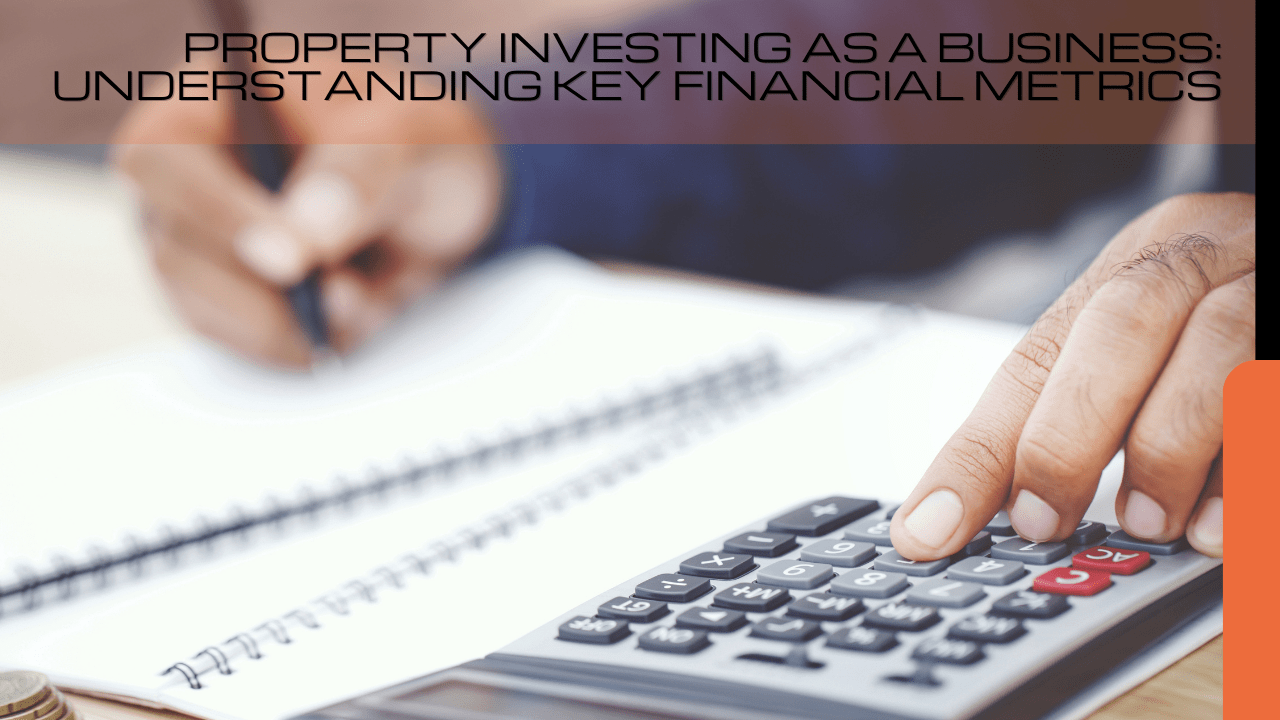
As you begin to add to your real estate portfolio, you’ll have to think about your rental properties as assets. You’re essentially running a business, even if you’re only renting out a single property.
And if you’re a business owner, you need to access and understand your financial metrics. How do you know what you’re really earning? And, is it enough?
Hopefully, you’ve established your investment goals. You know if you’re hoping to simply earn a little bit of income every month, save for retirement, or really build a portfolio that can establish financial security and wealth.
In our professional Atlanta property management experience, we have seen a lot of investors fail because they don’t have a strong set of goals and they don’t understand what success looks like or how to pursue it. Alternatively, we have also seen a number of smart investors succeed. Those rental property owners are successful because they’re willing to treat their investment property like a business.
If you’re renting out a home you once lived in or you have strong emotional ties to the property that you’ve recently purchased, it can be difficult to create a sense of space and distance between you and the rental home. You might worry that tenants are never going to take care of it the way you would. Or, you may become too friendly with those tenants and let things slide like on-time rental payments.
Treating your rental property like a business is essential. It earns you more money and perhaps more importantly - it protects you from risk and liability.
There are a few things you can do to make sure you’re earning as much as possible on your investment property, treating it like a business, and analyzing the key financial metrics that will tell you how well you’re performing and whether there’s any room for improvement.
Cash Flow and Your Atlanta Investment Property
Cash flow is perhaps the first and most basic financial metric you can consider when you’re evaluating the performance of your investment property. This is where it really comes down to understanding what your rental business can earn for you. If you’re thinking about a potential acquisition, you’ll want to estimate how it’s able to cash flow. If you’re already renting out a property, its success likely depends on how much rent you’re earning every month and how that stacks up against your expenses.
This financial metric has a simple definition: cash flow is the profit you earn after your expenses have been paid in a given month.
Add up all the rent you collect and subtract the expenses, which might be a mortgage payment, taxes, insurance premiums, etc. Whatever is left from that equation is your cash flow.
In an ideal world, you’re earning positive cash flow, meaning the rental income you collect more than covers your expenses. Negative cash flow can happen, though, and it doesn’t mean your investment property isn’t profitable.
There are many ways to earn money with Atlanta real estate, and this leads us to our next financial metric.
Total Return and Your Atlanta Investment Property
Total return is a little different because it includes your cash flow, but it also considers appreciation, depreciation, and amortization. This metric is a bit more involved and requires a little more data.
Appreciation is the growth in value that you can count on for your rental property. It will be worth more when you sell it than when you bought it.
Depreciation is the generous tax benefit you get from the IRS. Each year you own a rental property, you can depreciate it on your taxes for up to 27.5 years.
Amortization is the pay down of your debt. Residents are essentially helping you pay down your mortgage, and that adds to your equity.
Total return allows for negative cash flow and allows you to see the full picture of your investment’s value and profitability.
Return on Investment (ROI)
Return on Investment, or ROI, is a term that gets thrown around a lot. Property owners and investors are always talking about their ROI. But, what does it mean?
ROI is a financial metric that shows you what you’re earning on the money you’ve invested. If you put $200,000 into a property and you know that you’ve earned $20,000 on it, your ROI is 10 percent. Understanding your likely ROI is especially useful when you’re deciding which property to invest in.
Vacancy and Retention Numbers Impact Profitability
One of the most important financial metrics and indicators of success is your vacancy rate.
Vacancy is extremely expensive and often difficult to recover from. It impacts what you’re earning now and what you’re capable of earning in the long term.
Take a look at vacancy rates and the speed with which you place tenants. Make sure you consider your turnover rate as well. How likely are your tenants to renew their lease agreements?
Tenant retention is good, of course, but it can also have an impact on your profitability because a tenant who has been in place for 10 years is potentially paying less than the market demands. That has to be measured against the likelihood of high turnover costs if that tenant moves out. You don’t want to lose the tenant, but you do want to bring your rents to market rates. And, when that tenant does finally move out, there will likely be a lot of repairs and maintenance required at the property before it’s ready to be rented again.
These are the financial metrics you need to measure. What will a vacancy cost you? What will retaining that tenant for another year cost you?
Atlanta is an excellent rental market for investors. This is a competitive market for tenants and a lucrative market for owners and investors. There’s been a strong surge of new multifamily construction to keep up with the demand for rental housing. Our population is increasing and the local economy is strong.
We mention these factors because they do impact your own financial metrics when you own rental property here.
Additional Metrics for Review When Investing in Atlanta
 You have to know a thing or two about the local real estate and rental markets before you start thinking about your financial metrics and how they should look. Real estate is extremely nuanced. It’s very local. What you read about national trends does not necessarily apply to Atlanta.
You have to know a thing or two about the local real estate and rental markets before you start thinking about your financial metrics and how they should look. Real estate is extremely nuanced. It’s very local. What you read about national trends does not necessarily apply to Atlanta.
Here’s the good news for Atlanta real estate investors – this market is one of the most desirable regions for buyers interested in rental real estate. That’s due to our low cost of entry and our diversity in properties.
Because of the hot market, there’s a lot of money to be made. The way you calculate your earnings will depend on a number of things, including the size of your portfolio, the age of the homes in it, and the investment goals that you’re personally working towards.
There are always commonalities, however, and what we tend to see when we’re talking about measuring financial metrics is a tendency to focus on one or more of the following:
Net Operating Income
Net Operating Income is established by subtracting your expenses from your revenue. This is simple math and a good starting point. It doesn’t take into consideration your mortgage debt or any improvements you’ll have to make to the property before renting it out.
Capitalization Rate
The Capitalization Rate or Cap Rate requires you to divide your Net Operating Income (NOI) by the total price you’re paying for the home. This can be used on all different property types, and smart investors have a specific number in mind before they buy. The only thing to watch for here is that usually you have to rely on the seller’s numbers. Do what you can to gather your own data on what you’ll earn on a potential rental property.
Gross Rent Multiplier
The Gross Rent Multiplier requires you to take the property price and divide it by the gross annual rent you anticipate earning. This can be useful when you’re measuring one potential investment against another. You’ll know which is most likely to earn you more.
Cash on Cash
Finally, the Cash on Cash metric asks you to divide your cash flow by the cash you paid in the real estate deal. It’s an important part of identifying how much return you’re earning on your investment. Most investors want to earn more cash with real estate than they do with their other investments.
These are the best and most basic financial metrics we can share with you right now, without understanding your unique position, the properties you own, and the investment goals you’re trying hard to reach.
We’d love to provide a more personalized and customized assessment of where you are and where you have the potential to go. Let’s talk about your investment portfolio and what you can gain by continuing to treat your rental properties like businesses.
Contact us at Property Services of Atlanta.

 Owner Portal
Owner Portal




